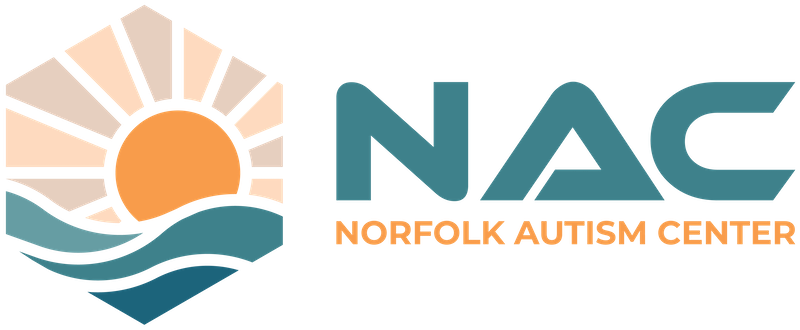The autism journey can sometimes feel isolating, especially when specialized services require long drives or waiting lists stretch into months or years. Yet some of the most meaningful support often exists right in your own community—sometimes just next door or down the street. Families frequently share that while clinical therapies are vital, it’s the local connections that sustain them day-to-day—the understanding neighbor who welcomes their child for playdates, the nearby parent group that truly “gets it,” or the local business owner who creates a sensory-friendly environment.
This article explores the varied types of local support available throughout Virginia communities and provides guidance for finding—or creating—the connections that can transform your family’s experience. We’ll look at both formal and informal supports, explore regional resources across different parts of Virginia, and share strategies for building your own network when established resources are limited. While every community is unique, the potential for meaningful local connection exists everywhere, from Virginia’s most urban neighborhoods to its most rural communities.
Types of Local Support
Local autism support comes in many forms, each offering distinct benefits for families navigating this journey. Understanding these different types helps you identify which might be most valuable for your family’s specific needs.
Formal local supports include professional services like nearby therapy providers, specialty healthcare, and educational programs. These might include your local ABA therapy center, a developmental pediatrician’s office, or specialized school programs. The primary advantage of accessing these services locally is convenience—reduced travel time means less stress and more energy for other aspects of family life. Local providers also often have deeper knowledge of other community resources and can help connect you to them. When evaluating formal local supports, consider not just proximity but also the provider’s experience with children similar to yours and their willingness to coordinate with your child’s other providers.
Semi-formal supports include organized groups and programs specifically designed for families affected by autism. Local parent support groups offer emotional understanding and practical advice from others who truly “get it.” Recreation programs adapted for sensory needs provide social opportunities in supportive environments. Religious communities with special needs ministries can offer spiritual support alongside practical assistance. These semi-formal supports often become a family’s most valued resource because they combine structured activities with genuine community connection.
Informal supports develop through everyday relationships in your immediate community—understanding neighbors, accepting classmates, supportive extended family, or local businesses that welcome neurodiversity. While these connections may seem less significant than clinical services, they often have the most profound impact on quality of life. A neighbor who casually welcomes your child to play, a local librarian who creates sensory-friendly story times, or a family member who learns about autism to better connect with your child—these relationships create a supportive fabric that holds families through both challenges and celebrations.
Different types of support become particularly important at various stages of the autism journey. When first seeking diagnosis, knowledgeable local healthcare providers are crucial. During school years, connections with other parents navigating similar educational challenges provide valuable guidance. As children grow older, community inclusion and vocational opportunities become increasingly important. The most resilient support networks combine elements from all three categories—formal, semi-formal, and informal—creating a comprehensive support system centered in your local community.
Finding Support in Different Virginia Regions
Autism resources vary significantly across Virginia’s diverse regions, with each area offering unique strengths and challenges. Understanding what’s available in your region helps you make the most of local opportunities.
Northern Virginia benefits from proximity to the DC metropolitan area, resulting in a high concentration of specialized providers and programs. Notable resources include:
- The Arc of Northern Virginia’s extensive parent training and information programs
- Autism Society of Northern Virginia’s regular support groups and recreational events
- Multiple specialized private schools and clinic-based services
- The ACCA Child Development Center’s inclusive early childhood programs
- Sensory-friendly initiatives at major museums and attractions
- George Mason University’s autism research and training programs
Central Virginia (Richmond area) offers strong university-affiliated programs and active parent communities:
- VCU’s Autism Center for Excellence provides training and resources
- Commonwealth Autism supports families and builds provider capacity
- The Faison Center offers educational and adult support programs
- Richmond Parks and Recreation adaptive programs
- Local support groups organized through the Central Virginia Autism Society
- Numerous sensory-friendly community events throughout the region
Hampton Roads provides extensive military-connected services alongside growing community supports:
- Military Exceptional Family Member Programs with autism specialization
- Children’s Hospital of The King’s Daughters comprehensive autism services
- Families of Autistic Children in Tidewater (FACT) support network
- Virginia Beach Recreation Therapeutic programs
- Autism Society Tidewater chapter’s family events and support groups
- Professional training through Old Dominion University’s autism education programs

While the availability of formal autism resources may vary across Virginia communities, the potential for meaningful connection exists everywhere
Rural Virginia communities face greater challenges with provider access but often excel at developing creative community-based solutions:
- Circuit-riding specialists who serve multiple counties
- Telehealth services expanding access to expertise
- Community services boards providing coordination
- Faith communities offering family support
- Virtual support groups connecting rural families
- Community colleges offering specialized training for local providers
For families in underserved areas, virtual options have dramatically expanded access to support. These include:
- VCU-ACE online training for families and educators
- Virtual parent support groups organized by regional autism societies
- Telehealth consultations with specialists based in urban centers
- Online parent coaching programs that teach intervention strategies
- Social media communities specific to Virginia regions
- Webinars and virtual workshops from statewide organizations
Regional autism advocacy organizations serve as excellent starting points for connecting with local resources. Contact your regional Autism Society chapter, Arc organization, or parent resource center to learn about initiatives specific to your community.
Building Your Own Support Network
When formal resources are limited in your area, creating your own local support network becomes especially valuable. With thoughtful approach and persistence, families can develop meaningful community connections that provide practical and emotional support.
Start by connecting with other local families affected by autism, even if just one or two initially. Schools can often facilitate these connections while respecting privacy—ask if the special education department might forward your contact information to other parents willing to connect. Community bulletin boards, both physical and virtual, can help identify potential connections. Local Facebook groups, neighborhood apps like Nextdoor, or community events provide natural opportunities to find other autism families. Be open about your interest in connecting while respecting your child’s privacy—simple statements like “We’re looking to connect with other families who understand the autism journey” often elicit responses from those with similar experiences.
Educating your immediate community creates a more supportive environment for your family. Consider sharing basic information with neighbors, your faith community, or local businesses your family frequents. Focus on practical ways they can be supportive rather than detailed explanations of autism. Simple statements like “My son communicates differently, but really enjoys when people greet him and then give him some time to respond” provide actionable guidance. Look for natural opportunities to build understanding rather than formal announcements. Remember that your goal is creating an accepting environment, not making your child the subject of special attention.
Identifying potential community allies often reveals unexpected support. Look for:
- Teachers who show particular understanding of your child
- Neighbors who demonstrate acceptance of differences
- Local business owners who make accommodations willingly
- Religious community members who reach out to include your family
- Parents of your child’s classmates who encourage inclusive interactions
- Community group leaders who adapt activities for diverse participants
These individuals often become valuable allies with just a little information and encouragement.
Support exchanges with other families can meet practical needs while building relationships. Consider arranging:
- Skill-sharing sessions where families teach each other strategies that work for their children
- Respite swaps where parents take turns watching each other’s children
- Resource libraries where families share books, sensory tools, or specialized equipment
- Carpooling arrangements for therapy appointments or activities
- Group outings that provide safety in numbers for community inclusion
- Joint advocacy efforts that address community-wide needs
These cooperative arrangements often develop into meaningful friendships that sustain families through challenges.
Remember that even one or two strong local connections can significantly improve your family’s quality of life. Rather than seeking a large network immediately, focus on developing a few authentic relationships that provide mutual support.
Leveraging Technology for Local Connections
Technology can be a powerful tool for strengthening rather than replacing local support networks. Various platforms help families identify nearby resources, connect with local peers, and access expertise without losing the community focus that makes local support so valuable.
Online platforms specifically designed to connect families with nearby resources include:
- Facebook groups focused on specific Virginia regions or communities
- Nextdoor neighborhood groups, where many parents seek connections with similar families
- The Autism Society of Virginia’s regional chapter pages
- Meetup groups organized around special needs parenting
- Virginia Parent Resource Centers’ online directories
- Local health department and community services board websites
These platforms help families identify resources that might not be widely advertised or that are newly established in their communities.
Apps and websites that help identify autism-friendly locations include:
- Sensory City app, which maps sensory-friendly locations
- Yelp reviews that mention autism or sensory accommodations
- AutismTravel.com for identifying vacation destinations
- Local chamber of commerce listings of businesses with autism training
- Virginia museum and attraction websites with accessibility information
- Parks and recreation department adaptive program listings
These tools help families confidently explore community inclusion opportunities knowing that accommodations will be available.
Virtual support groups with a local focus provide the benefits of online convenience while maintaining community relevance. Many regional Virginia parent groups now offer hybrid meetings—both in-person and virtual participation options—making them accessible to more families. These locally-focused virtual connections often address region-specific topics like navigating a particular school district or accessing specific Virginia programs, making them more immediately relevant than broader online communities.
Telehealth services have expanded significantly, allowing families to access specialized expertise while maintaining local service connections. Many Virginia providers now offer hybrid models—in-person services complemented by virtual consultations, parent coaching, or follow-up appointments. This approach combines the relationship benefits of local providers with the specialized expertise that might only be available in larger cities.
While online connections provide valuable support, balancing virtual and in-person interactions creates the most comprehensive support system. Consider using technology to identify and organize in-person connections rather than as a substitute for face-to-face community engagement. Virtual connections often serve as an entry point that leads to more meaningful local relationships over time.
Growing Your Community Connections
Finding and creating local autism support takes time and effort but can dramatically improve quality of life for your entire family. While the availability of formal resources may vary across Virginia communities, the potential for meaningful connection exists everywhere. Start by identifying one or two resources or potential connections that align with your current priorities, then gradually expand your network as your capacity allows.
Remember that building local support is not an all-or-nothing endeavor. Small steps—joining one local group, connecting with one understanding neighbor, or finding one autism-friendly community venue—can significantly improve your family’s experience. These connections often snowball as each relationship leads to new introductions and resources.
If you’re in the Norfolk region and would like to connect with local resources or join a supportive community that understands the autism journey, Norfolk Autism Center welcomes your call at (757) 777-3229. Our center at 152 Burnetts Way, Suffolk, VA 23434 serves as a hub for local families seeking connection and support. We can help you identify resources specific to your neighborhood and circumstances, and introduce you to other families who might share your experiences. Together, we can build communities where families affected by autism don’t just survive but thrive.




